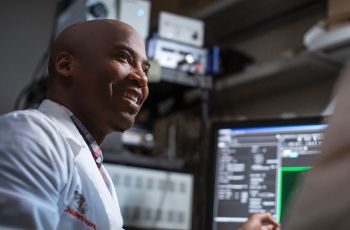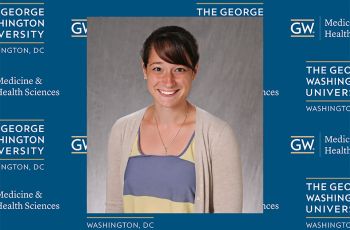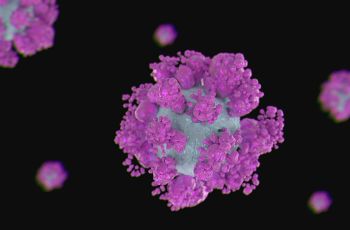Pharmacology & Physiology
Vsevolod “Seva” Polotsky, MD, has been selected to serve as vice chair for research in the Department of Anesthesiology and Critical Care Medicine at the George Washington University (GW) School of Medicine and Health Sciences and the GW Medical Faculty Associates. Polotsky will also serve as…
A team of researchers from the George Washington University has now shown how a particular part of the brain called the medial prefrontal cortex enables mice to choose to interact with a fellow mouse instead of an inanimate object. Stimulating this part of the brain in a mouse model of Rett…
George Washington University (GW) faculty member Nathan Smith, PhD, assistant professor of pediatrics and of pharmacology and physiology at the GW School of Medicine and Health Sciences, was elected to the 2021 class of American Association for the Advancement of Science (AAAS) Fellows, in the…
Katherine Blackmore, PhD ’21, received a 2021 Chorafas Foundation Award for outstanding work in the selected fields of engineering sciences, medicine, and natural sciences for her work on metabolic syndrome.
Images that highlight the beauty and breadth of biomedical research and a passion for science at the George Washington University (GW) School of Medicine and Health Sciences (SMHS) were on display in the annual SMHS Art of Science contest.
A group of interdisciplinary researchers received more than $3.3 million in grants for their research on networks within the autonomic nervous system and therapies that may lead to new treatments for heart attack and sleep apnea.
Four young researchers at the GW School of Medicine and Health Sciences were selected as fellows to the recently awarded five-year National Cancer Institute T32 Training Grant.
A recent review published by GW researchers suggests that nitric oxide has promise as a therapeutic to control the replication and rapid spread of SARS-CoV-2.
The George Washington University (GW) School of Medicine and Health Sciences (SMHS) was recently awarded its first-ever National Institutes of Health T-32 research training grant from the National Cancer Institute (NCI) in support of the GW Cancer Biology Training Program.
Researchers at GW will investigate the changes that occur in the ventral tegmental area of the brain, where dopamine neurons are located, during chronic stress.





